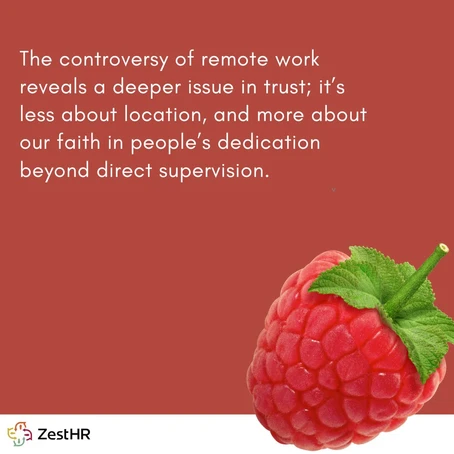

The controversy of remote work reveals a deeper issue in trust; it’s less about location, and more about our faith in people’s dedication beyond direct supervision.
This statement resonates now more than ever. The shift to remote work or hybrid working wasn’t just a logistical change; it was a cultural leap.
As leaders, managers, or colleagues, we’re now asked to rely on a new kind of bond. It’s one where we don’t see the immediate evidence of productivity (heads down, typing away at desks), but rather, we wait to witness the output, the ideas, and the results that can come from anywhere. It’s a serene realisation, letting go of the need for constant oversight and embracing the quiet confidence in each team member’s commitment and sense of responsibility.
This transition is not about giving up control, but about moving forward with a mutual respect that acknowledges that dedication isn’t tethered to a desk, and productivity isn’t measured by the clock.
As we navigate this change, let’s take a moment to reflect on our individual roles. Are we fostering an environment of trust, respect, and autonomy? Are we judging success by the quality of work rather than hours spent in an office setting?
It’s an ongoing journey, but one well worth the effort for the growth and adaptability of our teams and businesses.

© Copyright Zest HR Partners Pty Ltd 2022 – 2025 | Privacy Policy | Terms & Conditions